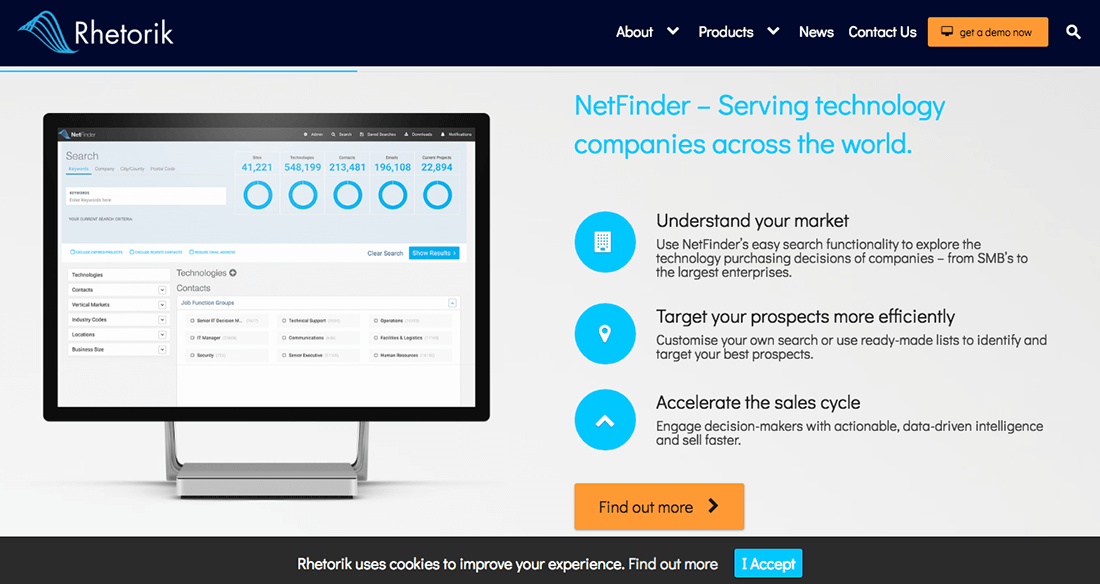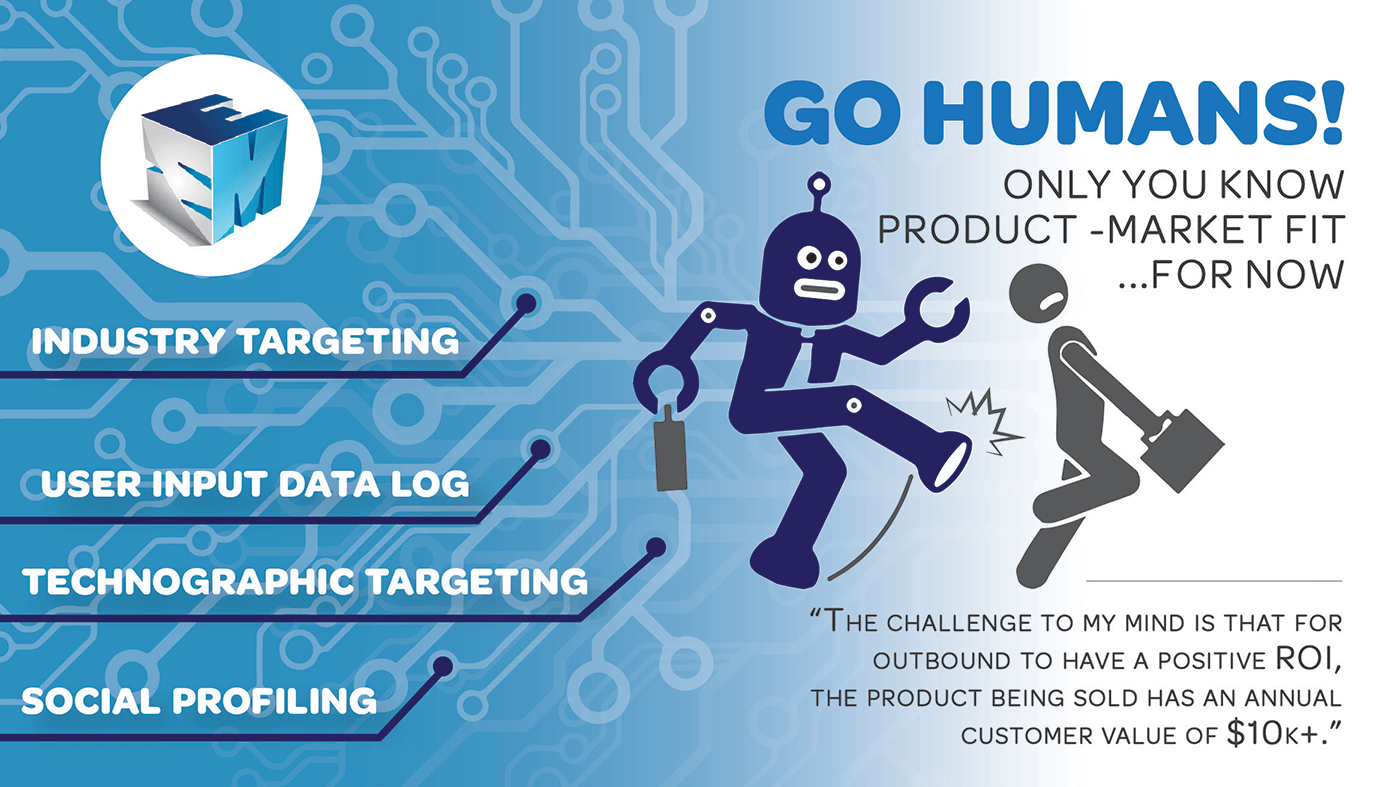
Selling opportunistically makes it more likely that you’ll squander your efforts on customers that won’t help you grow and achieve your goals. Tightly focusing on your...
From Amazon creating robotic warehouses to Google’s Self Driving Cars, the topic and timeline around when AI will begin to replace humans is a common topic of debate.. AI was coined in the the 1950s and is divided into two schools of thought:
And although the greatest minds in field such as Ray Kurzweil (Google, Singularity); Jeff Dean (GoogleBrain, Map Reduce); Andrew Ng (Baidu, Google Brain) and even more here are working quickly to replicate the human mind, we are discovering that despite having a “self driving car” we need way more involvement from humans to make it truly self driving.
That said, a modern take from many is that the brain is just a computer and can easily be programmed, manipulated. If all goes accordingly to this theory, then computers will become so advanced that they will soon take over every function that the human brain possesses, or rather, could be programmed to do so without as many mistakes as humans.
Is this theory quickly becoming a reality for outbound marketing? We decided to investigate...

Google indexes websites almost entirely using AI and can read your email, can suggest a reply with a common phrase; advertising is being served to you based on inputs and outputs that are self learning (for example, based on what you say when Facebook is listening…), Amazon is using Alexa to process requests globally and is shipping packages from their warehouses without a single person touching them. And Pandora delivers on the promise of “similar” music with hardly an input from you outside of selecting your first station. So basically they know what you like without you even telling them. It’s almost creepy how in tune AI is with our personal thoughts and preferences.
Many questions come into play when debating if AI should be used to develop business growth. Could AI help generate more selling opportunities? If AI has taken over this much of our day to day activities, perhaps it's time we start incorporating it into our sales and marketing processes.
For initial ROI math to work for most outbound marketers, they need to sell a solution that generates at least $5,000 - $10,000 in lifetime customer revenue.
Products and SaaS solutions that are $10,000+ investments fit into complex niches with small total addressable markets that are constantly evolving. This makes the availability of training sets for learning limited and the complexity of the tasks high. The return on investment of automation in these types of tasks is low because their complexity and changing nature.
That’s where modeling, industry targeting, user input log data, technographic targeting, social profiling and everything else stops without a human. Without the human who is making the call or sending the email having specifically decided why the account is in the campaign, they’ll be disconnected from why the meeting is a great fit for sales and the prospect.
General Electric makes light bulbs, jet engines and offers financial services. Without a training set gathering data from an outbound team, AI is only as smart as the industry it’s told to prioritize, if the data even has a standardized industry you can use. With that being said, can AI adapt to all verticals and keep up with the changes that most industries endure on a daily basis?
Our guess? Probably not for most outbound marketers.
Human interaction is key to determining if the product is the right fit for the consumer. Machines can help all day with tee’ing up qualified accounts based on broad metrics, but when it comes down to the data equivalent of “is this rap music?” only the SDR can make the call based on the customer profile.
It's also crucial to make interactions with customers at a genuine level. If we are using strictly an AI based platform then are the interactions we are having genuine? Most likely not and another human can sense automation in a heartbeat.In order to really draw someone in with your product, it doesn’t only have to be good, but you also have to connect with that person efficiently and understand why your product brings their business value.
Unfortunately AI lacks the training data and exposure to changing business cases that would make it viable. While we’re totally in support for making data easier to be reviewed by a human for fit (check out EMMQuery, shameless plug) we think we’re quite a long way off from coming into the office in the morning to a ready list of prospects that absolutely fit all your criteria, unless you do it yourself.
We see the potential for machine learning within large groups of mar-tech users to help reduce subjectivity and help teams build targeted segments for their manual review faster. Data elements like industry see improvement by harnessing “similar” choices from user consumption like popular music apps do, and reduce the time investment for the next incremental qualified account / contact. AI can also be useful to this large groups of people to eliminate some of the labor intensive work that they endure. Quite often we see humans taking on ample amounts of work with little time to complete it. AI can help out in this in major ways.
Building a targeted account or prospect list is a labor intensive process for SDR’s and inside sales people. Making the names in their list more qualified relative to the target group can be semi-automated and greatly assist sales and marketing teams by saving time preparing to prospect. Some mar-tech solutions already have features like this. Can we really call this AI? If what we’re talking about is presenting data to the business development rep that’s “in the right ballpark”, that’s selecting industry by SIC in a fancier way. It’s vertical progress not horizontal progress. The b2b marketing equivalent of making the word processor out of a typewriter.
Hardly a flying, automated marketing car.
So again, let's ask ourselves, “Is AI about to take over a human dominated industry?” The answer: Not yet. We are a long way off from AI curating the accounts in your list for you or driving the copy that will resonate with prospects about the problem your product solves.
On the bright side, there is very little chance of the Skynet AI evolving from anything available in the mar-tech community. Humans will reserve final veto on qualifying business fit and sales calls for some time to come. If they don’t, marketers will risk being poorly targeted and thus potentially damaging their brand. At best, response rates will be sub-optimal. Even if marketing is willing to run fast and loose on the targeting in the name of lead velocity, sales will see it in the conversion rate.
Only time will tell how AI will impact us....

Selling opportunistically makes it more likely that you’ll squander your efforts on customers that won’t help you grow and achieve your goals. Tightly focusing on your...

The goal for any marketer is to focus on efficient and effective marketing campaigns that produce results. For outbound marketers, that means aggregating data well to...